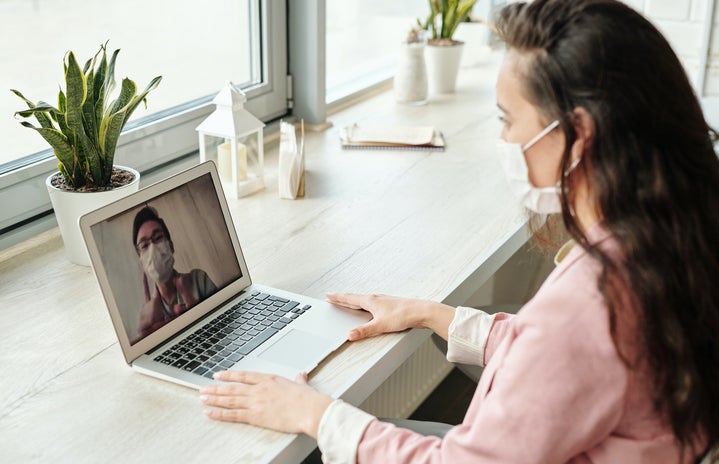Sophomores at Kenyon college had the opportunity to be on campus for both the fall and spring semesters this year. During an incredibly difficult time, being on-campus gave me the opportunity to hang out with my friends, attend some in-person classes and office hours, and explore the incredible Knox County, Ohio, and all its secret spots. However, beyond the incredible experiences I have been able to have during my sophomore year, being on a college campus during a pandemic has been nothing short of terrifying and mentally draining.
Without a spring break, students at Kenyon College have been working nonstop since January. Not only has this affected students’ mental health, but it’s also decreasing the quality of our work and our enthusiasm for learning. Sophomore Laura Stone says, “I always get excited to learn after a long break. Without spring break, it makes me forget that I enjoy learning. Right now all I can think about is sitting on my couch and vegging. I’m exhausted.”
Kenyon College canceled spring break due to safety concerns, arguing that students would, even if they were told not to, leave campus and travel during time off, potentially bringing COVID-19 back to campus. What they failed to realize, however, is how students would suffer because of this choice. It is evident that Kenyon hasn’t made student mental health a priority this semester.
This is not the only dark side to being on campus right now. One sophomore student took a big blow in January when she tested positive for COVID-19. Whisked away to the Comfort Inn, she was not even allowed to go outside and get fresh air for her entire 14-day quarantine. Of course, it is imperative that colleges put positive students into quarantine (although allowing them to take walks wouldn’t hurt anyone). It’s not the college’s fault that two months later the student who tested positive found out her test was a false positive. After a lot of speculation, she went to get tested for COVID-19 antibodies, and she had none – suggesting that she has certainly not had COVID-19 in the past three months.

“I would say that I totally understand why I went to the Comfort Inn—I got a positive test. and while it was a really tough, isolating experience, I’m glad to have done it for the sake of the community. However, I do wish I had been retested. I understand that people can see it as a waste to retest those who’ve already gotten a positive test but when I think about it all I can think is that maybe I would only have been in the Comfort Inn for two days instead of ten. I had a really, really hard time in there; you can’t leave your room at all, so I felt like I was trapped in this tiny box for over a week (side note: you’ve never felt how long ten days really is if you’ve never been stuck in a hotel room in quarantine). The quality of my academic work dropped, as did my mental health. And knowing now that it probably was a false positive, I do feel a bit like the school didn’t really care about me, because they thought it made more sense to just stick me in the Comfort Inn rather than give me one extra test.”
A false positive is not that abnormal- the testing company Kenyon uses has a 5% false positivity rate, and I’ve heard other students say that they believe their results were false positives as well. Not only does this affect students who falsely test positive, but it adds to anxieties that other students have. One sophomore told me, “I’m scared that even though I don’t break any policies and am very careful about covid, I’ll receive a false positive test and will have to be in isolation for two weeks when I’m not even sick.”

Yes, it’s a blessing that we get to be here on campus, but it’s been a never-ending semester of tough academics, stress over covid, and endless “quiet periods.” Luckily, students are getting vaccinated and we will hopefully be able to return to a semblance of normalcy in the fall, but I think it’s important that the faults in the college COVID-19 policies are discussed.

